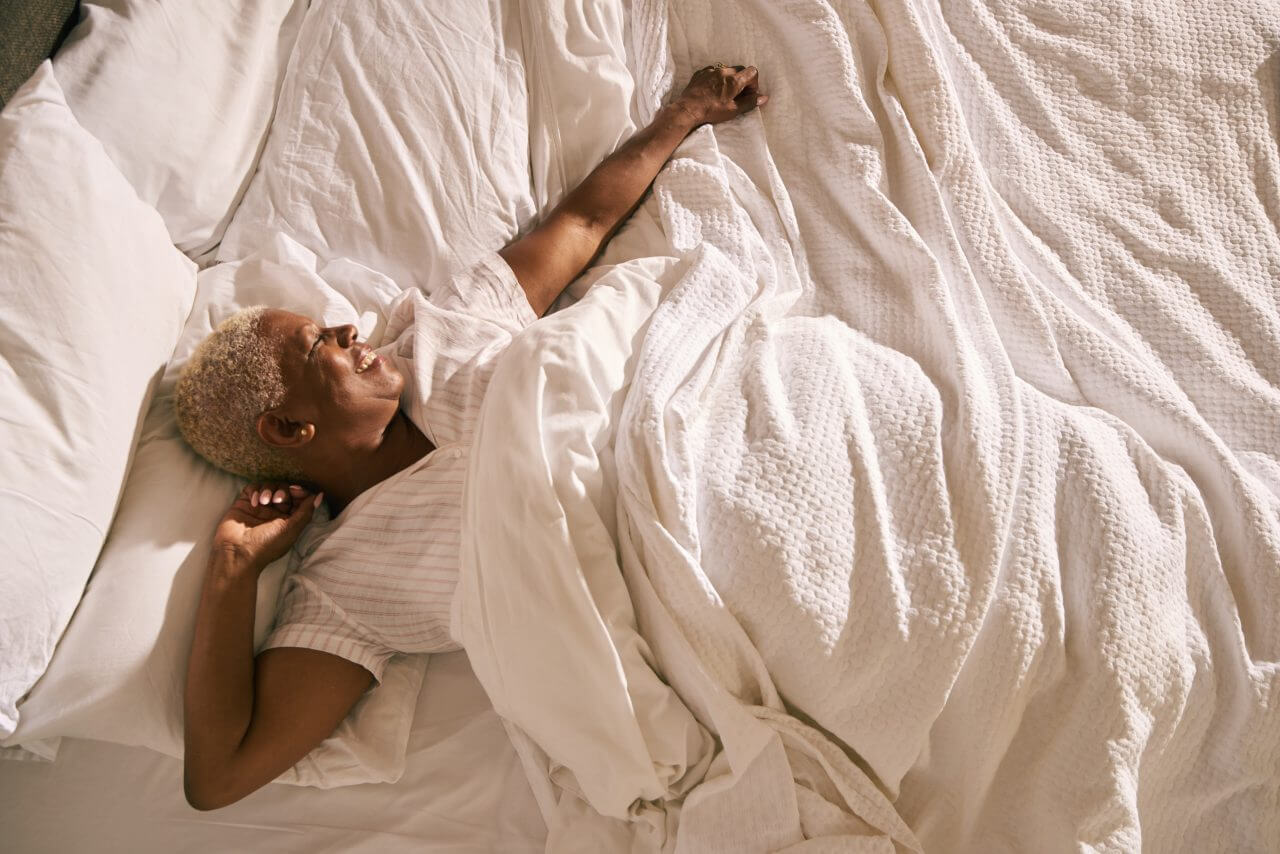In Case You Missed It, We Have a Podcast Episode About Sleep
All About the 4 Most Common Sleep Disorders
Listen Now
Stress can impact your life in many ways, including the quality of your sleep. The ways that stress can affect sleep, though, depends on the person. People react to stress differently. Those with low resilience to stress are more likely to experience insomnia.
Stress often impacts the quality of your sleep and the duration. Both stress and a lack of sleep can have a severe impact on your physical and mental health. When you’re feeling stressed, your body triggers a hormonal stress response that releases glucocorticoids like cortisol, which creates a boost of energy that allows you to fight or run from danger. Prolonged stress levels have been linked to decreased sleep duration, poorer quality sleep, and reduced REM sleep.
Insomnia is a sleep disorder that inhibits a person from falling asleep when they want to (sleep onset insomnia) and/or stay asleep through the night (sleep maintenance insomnia). Nearly one-third of adults in America say that they get insufficient sleep and the Centers for Disease Prevention and Control (CDC) went as far as to call the situation an epidemic.
Stress and insomnia are related. Stress can cause insomnia and insomnia can cause stress. It’s important to note that while stress can promote insomnia, not everyone who experiences stress suffers from sleeping problems. Insomnia plays a part in contributing to stress because sleep deprivation affects mood, making you feel frustrated and irritable. Insomnia can exacerbate stress because dealing with sleeping problems is a stressor in and of itself.
All About the 4 Most Common Sleep Disorders
Listen NowIf high levels of stress aren’t dealt with, your health, well-being, and ability to sleep will suffer. Here are some things you can do to ease your stress and sleep better:
For more information on common sleep problems, contact the Baptist Health Sleep team today.